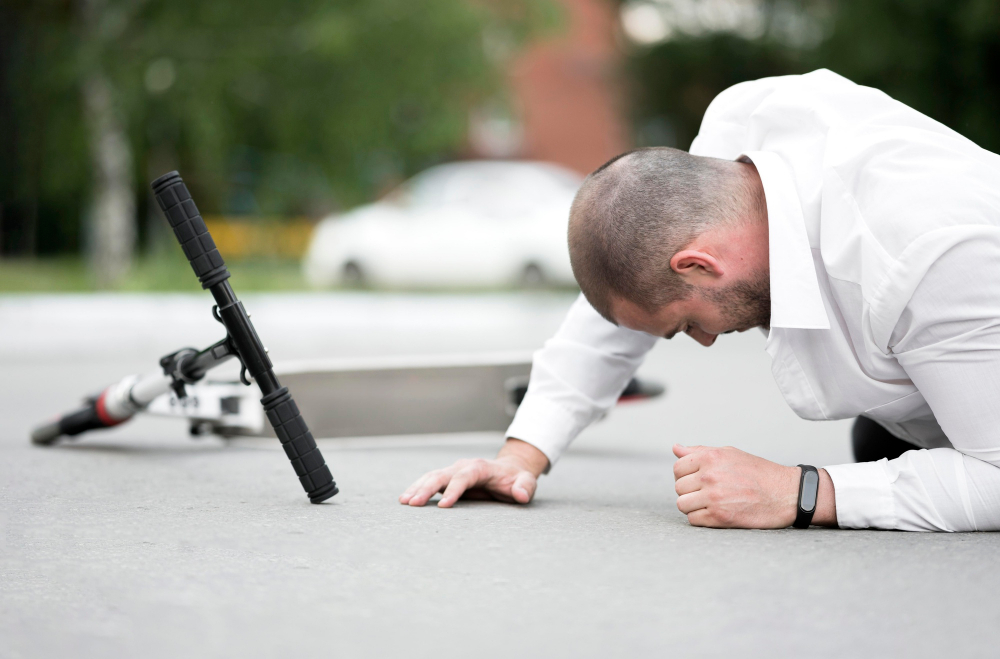Slip and fall accidents happen more often than people realize. From wet floors in grocery stores to uneven sidewalks outside businesses, these accidents can cause serious injuries that disrupt your life. Victims often face medical bills, lost wages, and lasting pain. Understanding your legal rights after a slip and fall accident is an important step in protecting yourself and securing fair compensation.
This article explains the common causes of slip and fall accidents, the injuries they may cause, and the steps you can take to protect your legal rights.
Why Slip and Fall Accidents Are Serious
Many people think of slip and fall accidents as minor mishaps, but the truth is they can lead to significant injuries. Victims often suffer broken bones, head trauma, or back injuries that require weeks or months of recovery. In severe cases, these injuries may even cause permanent disability.
The impact is not only physical but also financial and emotional. That’s why knowing your legal rights after a slip and fall accident can make all the difference.
Common Causes of Slip and Fall Accidents
Wet or Slippery Floors
One of the leading causes of slip and fall accidents is wet surfaces. Spilled drinks, recently mopped floors, or leaks can create dangerous hazards if not properly marked with warning signs.
Uneven Surfaces
Cracked sidewalks, potholes, loose tiles, or poorly maintained flooring can cause people to lose their balance. Property owners have a duty to repair or warn of these dangers.
Poor Lighting
When areas like stairways or parking lots are not well-lit, it becomes difficult to see obstacles. Poor visibility often contributes to falls.
Clutter and Obstacles
Boxes, cords, or debris left in walkways can trip people and cause serious injuries.
Common Injuries from Slip and Fall Accidents
Slip and fall accidents can result in a wide range of injuries, some of which may not appear immediately after the fall.
-
Fractures: Broken hips, wrists, and ankles are common, especially among older adults.
-
Head Injuries: A sudden fall can lead to concussions or even traumatic brain injuries.
-
Back and Spinal Injuries: Slips can cause herniated discs or spinal cord damage.
-
Cuts and Bruises: While minor, these injuries may still require medical attention.
Understanding the possible injuries highlights why seeking medical care right away is so important.
Who Is Responsible for Slip and Fall Accidents?
In most cases, property owners and businesses are legally responsible for keeping their premises safe. This concept is known as premises liability law.
To hold a property owner accountable, victims must show that:
-
A dangerous condition existed (such as a wet floor or broken step).
-
The property owner knew or should have known about the hazard.
-
The hazard was not fixed or properly warned about.
-
The victim was injured as a direct result.
This legal framework protects individuals and ensures that negligent property owners are held responsible.
What to Do After a Slip and Fall Accident
Knowing what steps to take immediately after a fall can strengthen your case and protect your legal rights.
1. Seek Medical Attention
Your health comes first. Even if you feel fine, some injuries may appear later. Medical records also serve as important evidence.
2. Report the Accident
Tell the property owner, manager, or landlord about the accident and ask them to create a written report. Request a copy for your records.
3. Gather Evidence
Take photos of the accident scene, including the hazard that caused the fall. Collect witness statements and keep copies of your medical bills.
4. Avoid Giving Statements to Insurance Companies
Insurance adjusters may contact you quickly, but their goal is often to minimize payouts. Do not sign anything without speaking to a lawyer first.
5. Contact a Personal Injury Lawyer
An attorney experienced in slip and fall accidents can guide you through the process, protect your rights, and help you seek fair compensation.
Compensation for Slip and Fall Victims
If you are injured in a slip and fall accident, you may be entitled to compensation for:
-
Medical expenses (current and future)
-
Lost wages and reduced earning capacity
-
Pain and suffering
-
Rehabilitation costs
-
Emotional distress
The exact amount depends on the severity of your injuries and the circumstances of the case. A personal injury lawyer can help you evaluate the full extent of your damages.
Time Limits for Filing a Claim
Every state has a statute of limitations, which sets the deadline for filing a personal injury lawsuit. Missing this deadline can mean losing your right to compensation.
It’s best to speak with a lawyer as soon as possible after a slip and fall accident to ensure your claim is filed on time and properly handled.
Conclusion
Slip and fall accidents can have life-changing consequences. From broken bones to head injuries, the physical and financial toll can be overwhelming. Fortunately, victims have legal protections under premises liability law. By seeking medical care, documenting your accident, and knowing your legal rights after a slip and fall accident, you can take important steps toward recovery and justice.
If you or a loved one has been injured in a slip and fall, don’t face the process alone. Contact a trusted personal injury lawyer today to discuss your options and get the guidance you need.

